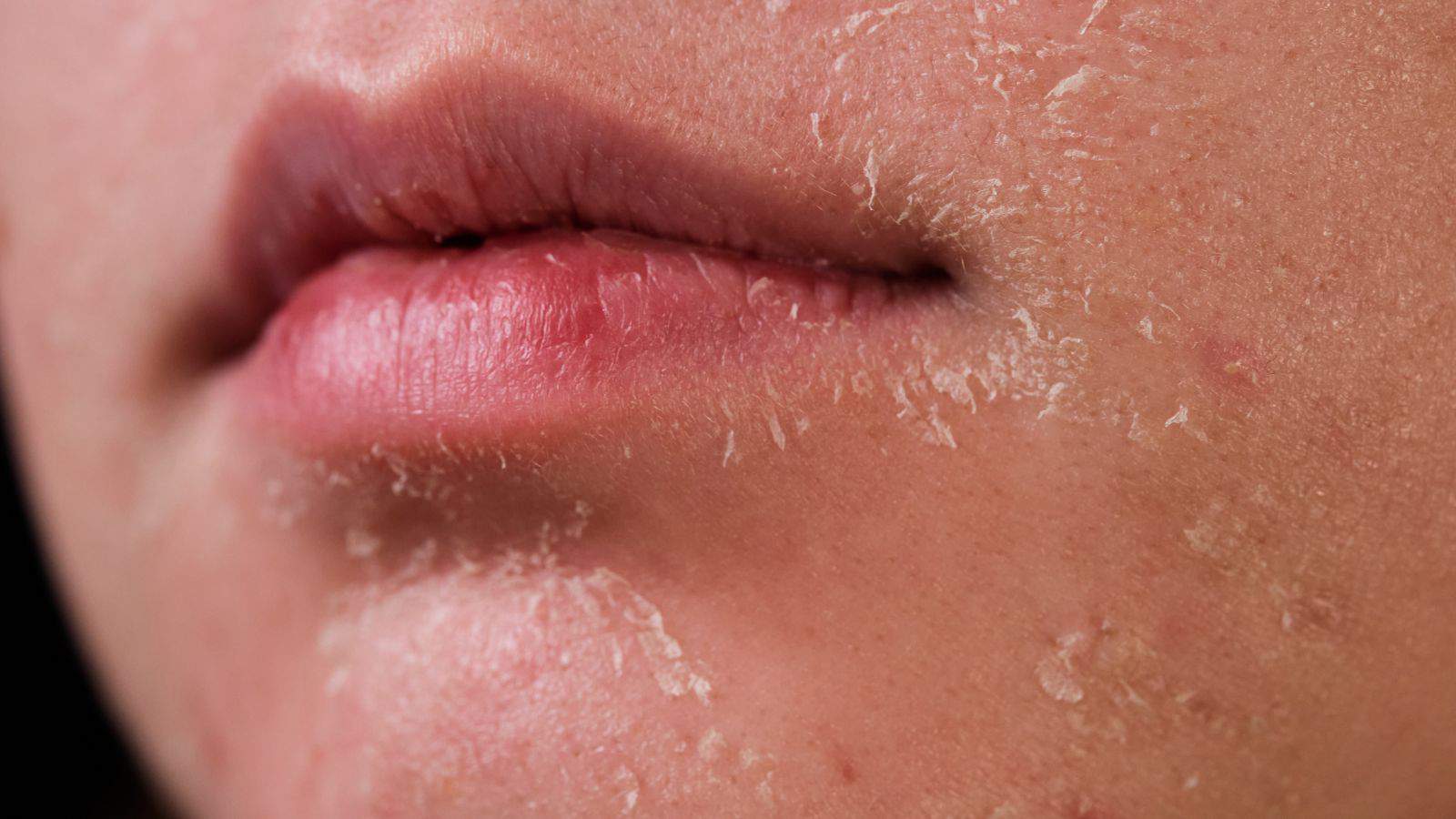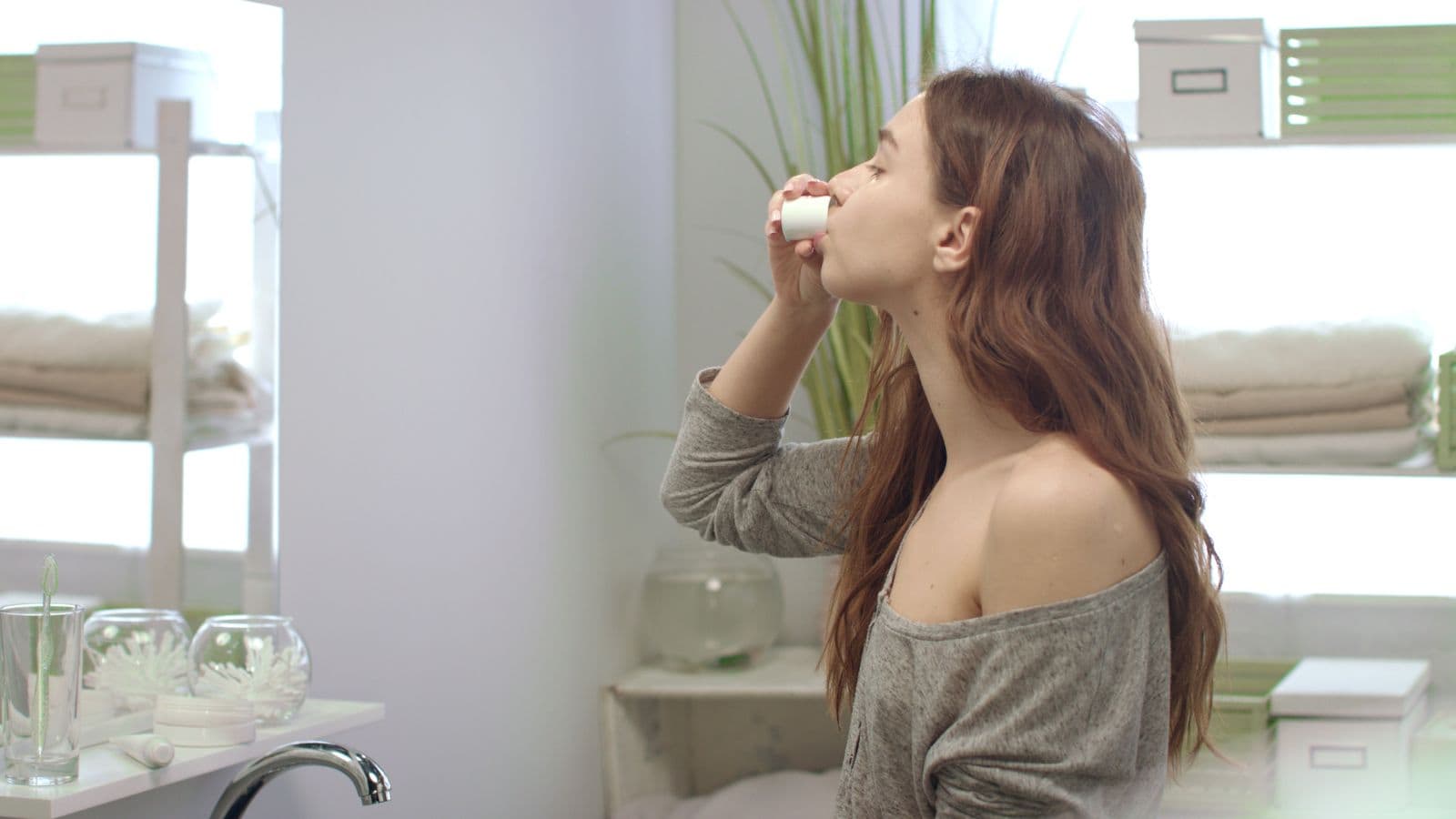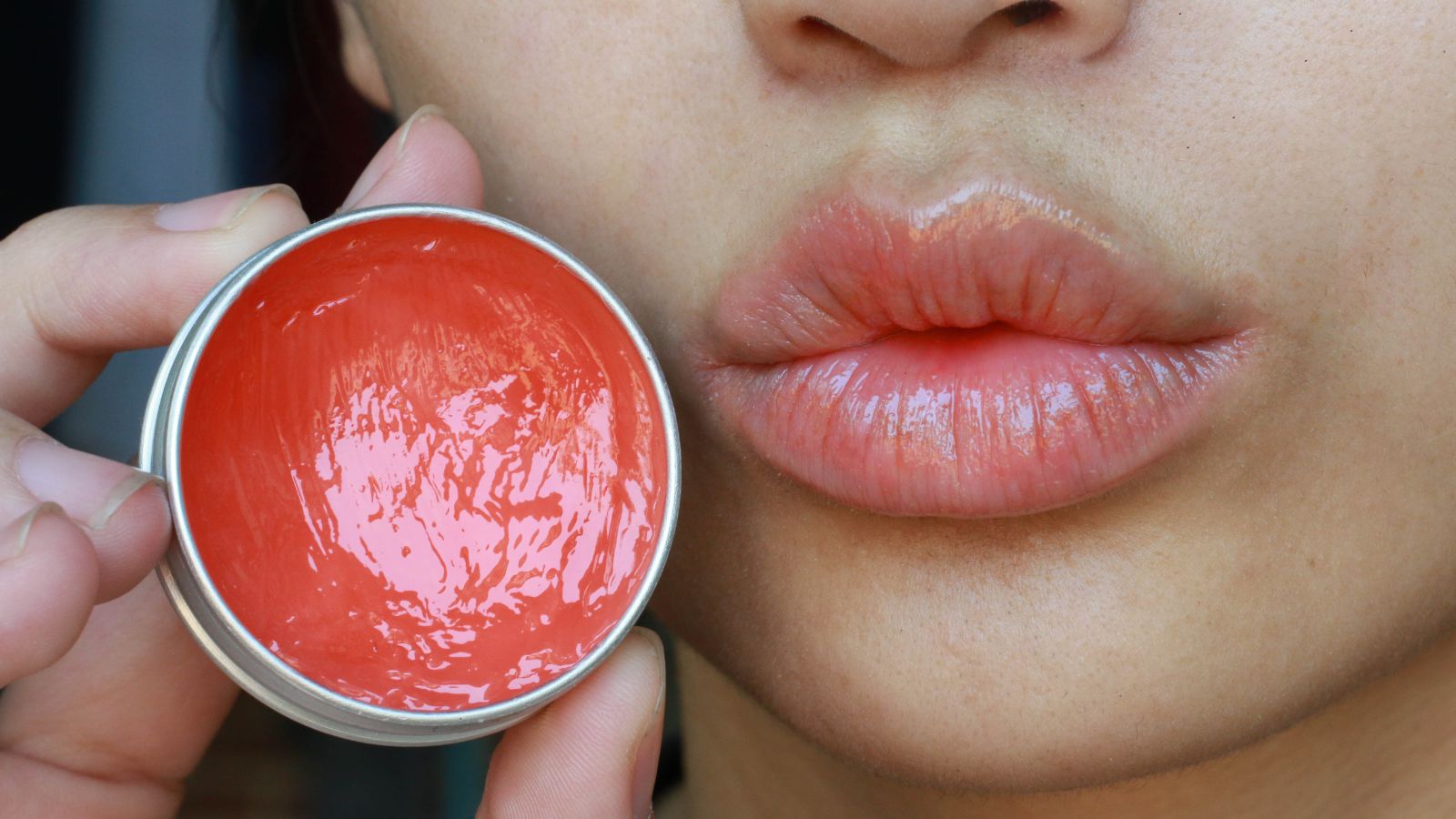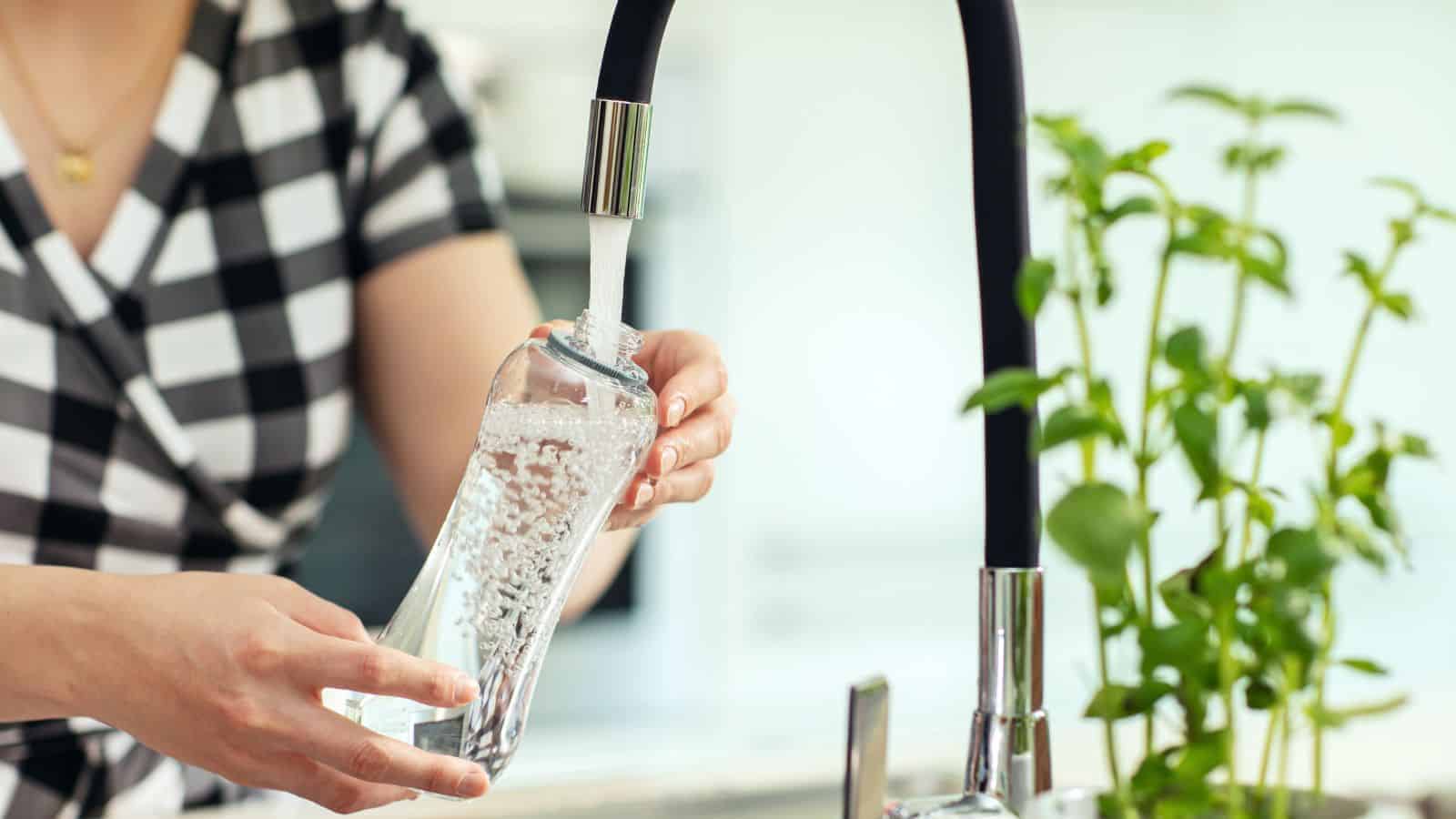If you’ve ever studied biology, you’ll know that water is essential for nearly every function in your body. But despite knowing this, many of us continue to jeopardize our health by not drinking enough. Mild dehydration can creep up on you slowly and subtly, but it’s important to recognize these little warning signs if you want to stay as healthy as possible. Here are some subtle signs that you might need to drink more water.
Dry Skin

One of the most common symptoms of mild dehydration is flaky skin. You may notice that your skin feels tight, flaky, or unusually dry. This is because water helps maintain skin elasticity and supports natural oils that keep your skin moisturized. If you keep lathering on the lotions and creams but they don’t seem to help, this is a likely sign that your body needs more hydration from the inside.
The good news is that simply drinking more water throughout the day can improve your skin’s texture and restore its natural glow over time.
Frequent Headaches

If you’re suffering from chronic headaches and can’t seem to figure out why, dehydration could be the underlying cause. As any doctor will tell you, water plays a crucial role in maintaining proper fluid levels around your brain, so even mild dehydration can cause headaches and feelings of tension. These headaches will typically feel dull or throbbing and may intensify as the day goes on.
Fatigue

Do you notice yourself feeling sluggish and tired even after a good night’s sleep? You may want to consider if you’re drinking enough water. Dehydration can really drain your energy because water helps transport oxygen and nutrients throughout your body. This means that when you’re not drinking enough, your cells can’t function at their best.
People who suffer from dehydration often notice that they become more tired in the afternoon, making it harder to focus and get through the day.
Dark Urine

Most of us will go to the bathroom, flush, wash, and leave without a second thought. But paying attention to the color of your urine can actually reveal a lot about your health and hydration levels. If your urine always seems to be dark yellow or amber, this is a sure sign that your body needs more water. Ideally, your urine should be pale yellow, as this typically means your body is well-hydrated.
Bad Breath

It sucks to struggle with persistent bad breath, but the good news is that the solution may be easier than you think. People sometimes develop bad breath simply because they don’t drink enough water. When your body lacks water, saliva production decreases, which allows bacteria to build up in your mouth. This leads to a dry, sticky feeling and not-so-pleasant odors.
Constipation

A lot of people know that dark urine is a strong indicator of dehydration, but your bowel movements can say a lot about your hydration levels too. If you’re going to the bathroom less often or it’s becoming more uncomfortable, dehydration might be the culprit. Water helps soften stool and promotes regularity, so when you’re not getting enough, it can lead to constipation. If this is the case, all you need to do is make sure you’re drinking enough water to support healthy digestion.
Dizziness

It’s easy to brush off temporary feelings of lightheadedness or dizziness, but this might be your body’s way of telling you it needs water. When fluid levels drop, your blood pressure can decrease, leading to unsteadiness or a sensation of fainting. This often happens after exercise or during hot weather when your body loses water through sweat.
Dry Eyes

If your eyes feel dry or irritated, this could be a sign that they need more hydration. Without enough water, your body struggles to produce adequate tears, which are essential for keeping your eyes healthy and moisturized. If they stay dry for too long, they can become red or feel like they’re burning. But luckily, this problem is usually easy enough to fix by drinking more water.
Muscle Cramps

Cramps are painful, unexpected, and pretty annoying to deal with. While anyone can get muscle cramps, you’re more likely to experience them if you’re dehydrated, especially during exercise. Proper hydration helps muscles contract and relax efficiently, so when you’re dehydrated, they’re more prone to spasms. Whether you exercise regularly or not, it’s important to make sure you’re getting enough water to ease cramps and improve muscle function.
Cracked Lips

Your lips need a whole lot of moisture to keep them healthy, so they’re often one of the first places to show signs of dehydration. If it seems like they’re always dry, peeling, or cracked, this is a likely sign that your body needs more fluids.
Lip balm can provide temporary relief, but increasing your water intake is the best way to keep your lips naturally moisturized.
Hunger Pangs

It may sound strange, but sometimes hunger pangs are actually your body’s way of saying it’s thirsty. The hypothalamus, which regulates both hunger and thirst, can send mixed signals when you’re dehydrated, causing you to misinterpret the sensations in your body. So if you’re craving snacks between meals, try drinking a glass of water first.
Lack of Sweat

It doesn’t feel great to be covered in sweat, but it’s an important part of keeping you cool in hot weather. If you notice that you’re not sweating as much as usual, especially during exercise or hot weather, this might mean your body is running low on fluids. This could put you at a greater risk of overheating, so it’s important to fill up on water regularly and keep yourself cool.
Rapid Heartbeat

If you notice that you often have a racing or irregular heartbeat, it’s a good idea to go to the doctor to make sure nothing sinister is going on. However, it’s often a simple case of dehydration. Low fluid levels can affect your blood volume, making your heart work harder to pump blood. If your heart feels like it’s pounding for no reason, having a tall glass of water might help stabilize it.
Poor Concentration

Do you often find yourself struggling to focus or feeling mentally foggy? Dehydration can affect your brain’s ability to function properly, leading to unpleasant sensations and poor concentration. If you want to stay mentally healthy and productive, it’s a good idea to keep plenty of water or other hydrating beverages at hand.
Dry Mouth

We already mentioned that cracked lips can be a sign of dehydration, but the inside of your mouth can tell you a lot about your hydration levels too. A dry, irritated mouth often means you’re already pretty dehydrated, so it’s important to top up your fluids as soon as possible. Sipping water regularly can prevent this sensation and support your mouth’s health.
Irritability

Everyone gets a little irritable every now and then. But if you notice that it’s becoming a long-term problem and you don’t know why, it might have a simple cause: dehydration.
Even mild dehydration can influence your mood, causing feelings of frustration or unease. Make sure you’re drinking enough water and see if it helps you feel more calm and collected.
Frequent Thirst

I know it sounds obvious, but if you’re feeling thirsty all the time, this is a clear sign that your body isn’t getting enough water. It’s easy to put off drinking when thirst begins to creep in, but it’s important to hydrate yourself before things become more severe. Keep a bottle of water handy to stay ahead of your body’s needs.
Dry Hair

If your hair feels brittle or lacks shine, dehydration could be affecting its health. Water is essential for maintaining moisture in your scalp and hair strands. When you’re not drinking enough, your hair may become dry and more prone to breakage. Upping your water intake can improve hydration from the inside out.
Cold Hands and Feet

You may think that you’re a naturally cold person, but in many cases, cold hands and feet actually point to dehydration. This is because poor hydration sometimes leads to reduced circulation, leaving your extremities feeling colder than usual. When your body is dehydrated, it prioritizes vital organs, which can restrict blood flow to places like your hands and feet.
